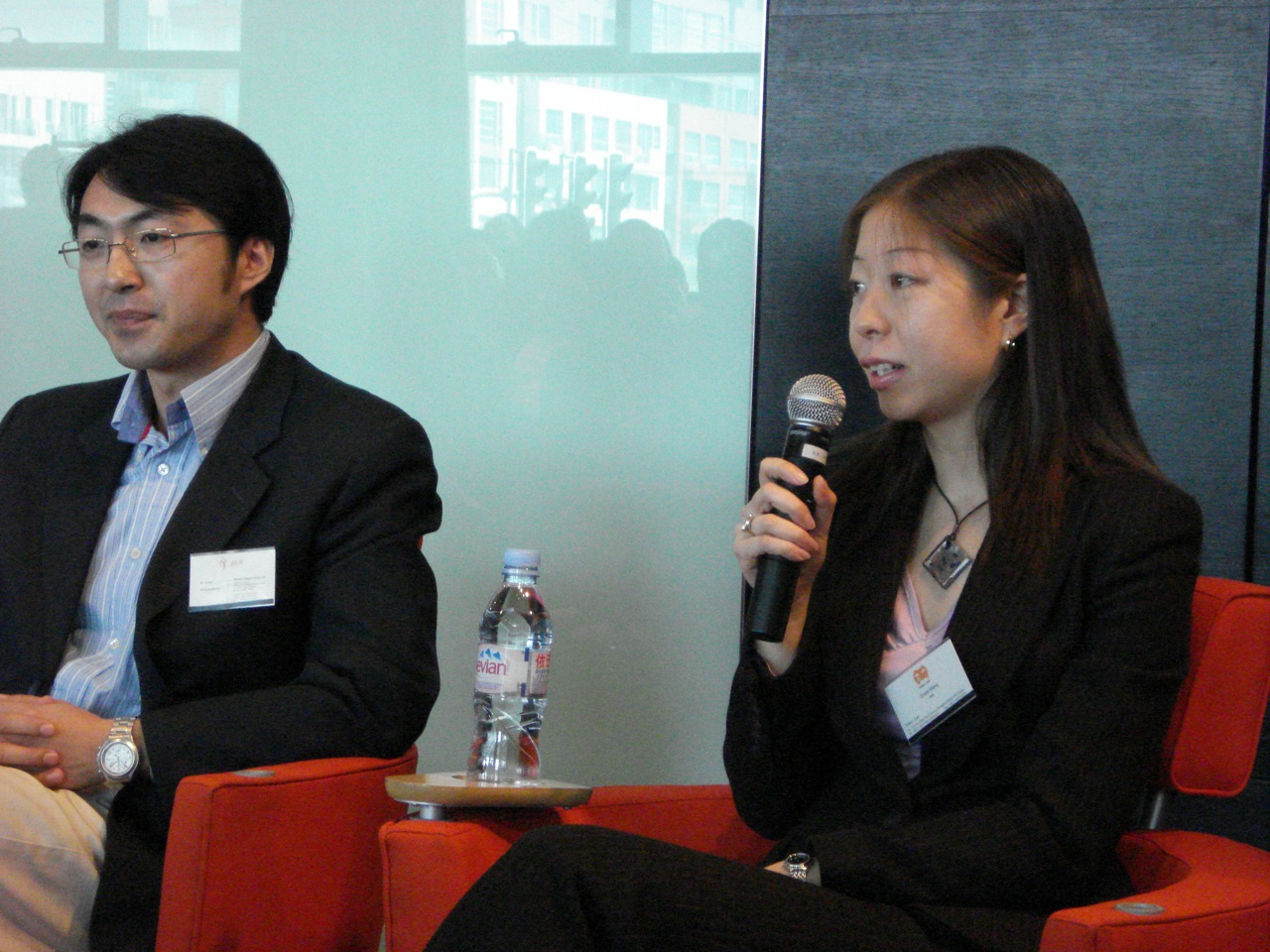 On Friday I was invited to attend the VC – Entrepreneurs Summit 2007, organized by INSEAD. A very interesting conference with excellent speakers, covering the VC industry in China from the perspective of both the entrepreneur and the (foreign and Chinese) VC. The event took place in the KIC (Knowledge and Innovation Community), a new complex of working and living space for entrepreneurs, start-ups and VC’s in Shanghai’s Yangpu district (next to the Jianwan stadium in Wu Jiao Chang).
On Friday I was invited to attend the VC – Entrepreneurs Summit 2007, organized by INSEAD. A very interesting conference with excellent speakers, covering the VC industry in China from the perspective of both the entrepreneur and the (foreign and Chinese) VC. The event took place in the KIC (Knowledge and Innovation Community), a new complex of working and living space for entrepreneurs, start-ups and VC’s in Shanghai’s Yangpu district (next to the Jianwan stadium in Wu Jiao Chang).
The conference was attended by most of the big VC’s active in China, including some of the major US funds. As usual, hardly any European funds… This point also came up during the summit, when Bruno Bersaid from the (French) China Expansion Fund raised the question why there are still hardly any European investors in China. There was no definite answer to that, but one reason is likely that Europeans are much more risk averse. That’s a pity, because they lose a lot of opportunities. Several US VC firms have people on the ground in China already, either through a cooperation with a Chinese fund or by having its own General Partners in China. Europeans you don’s see much yet, and if you see them they fly in and out, trying to make deals in a few days. That won’t work, but they will find that out soon enough. I know some European VC’s read this blog, so I hope this advice might help them. You need your own people in China for deal sourcing, deal valuation and deal follow-up. Without that you are very likely to fail – or for sure you will miss out on some excellent opportunities.
I don’t plan to give a whole report about all the speeches and panel discussions that I listened to (my wife was actually on a panel discussion, talking among others about how Tudou works with its VC’s), but just want to highlight a few key points that might be interesting for my readers:
– China is now the second biggest VC market in the world. Still much smaller than the US, but growing at an amazing pace. The focus is not only on high-tech, but also on high-growth (well, I guess most Chinese companies are high growth companies)
– The VC industry is the most internationalized industry in China
– There is a shift from offshore USD investments to onshore RMB investments. This year is probably the year that this shift will take place, partly due to SARFT regulation 75 which tries to limit offshore investments in China
– Local IPO’s become a more profitable exit option. For example a IPO on the Shenzhen stock exchange can be quite interesting, with a current P/E average of 51 and reasonable liquidity.
– The average life span of a business plan in China is….. just one month! The shows how fast the market (incl. regulations, competitors) change here. Foreign investors often don’t realize this. Competition is cut-throat here and you have to work twice as hard as outside of China to succeed, but you can also grow much faster than outside China.
– Because many funds are trying to get into China, it is getting easier for entrepreneurs to get funded. This means that they get more powerful, and as an investor you need a quick decision process to make sure you don’t lose the deal. I have some experiences here myself, and it is often difficult to explain this to investors from (especially) Europe.
– Chinese VC’s vs. US VC’s: Chinese VC’s are more hands-on, have tougher term sheets, invest in several tranches, are more short-term focused, and (of course) have better connections in China.
I had lunch at the IPO restaurant (great name!) with my wife and the successful US-Korean entrepreneur, Mr. Paul Song. He was also one of the speakers, and I was quite impressed by his achievements. He set up a company in the US in the early 1990’s (Aris Corporation) and without any VC capital managed to grow this to 900 people before listing it on the NASDAQ. He is now looking at opportunities in China and Vietnam, and we talked among others a bit about the opportunities for online gaming in Vietnam. Right after lunch I had to go back to the office, because I still had a lot of things that I wanted to finish before the weekend. A pity, because the first part was excellent, and I am quite sure I missed some interesting presentations.
Vietnam should be an interesting market for tech investments. THe majority of the population is young (<40) and the country is facing rapid development.
Especially in the more urban areas.
Like CHina, rules and regulations can be a challenge though….